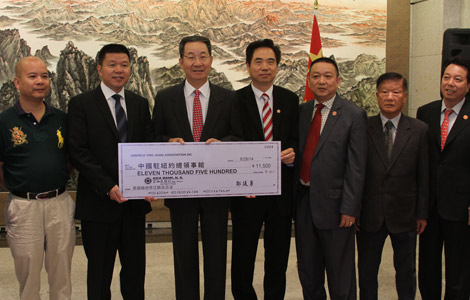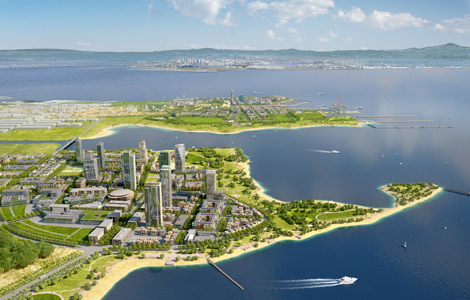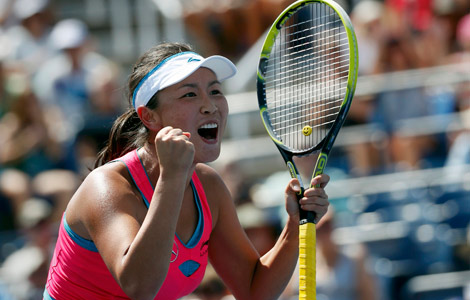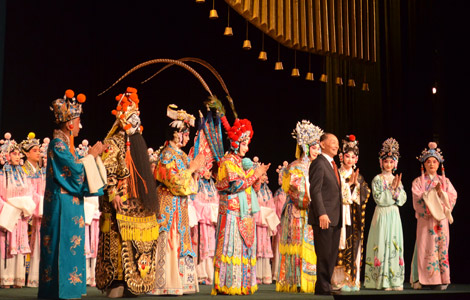Academic backs government's leadership of HK political reforms
Updated: 2014-08-30 16:50
(Xinhua)
|
||||||||
BEIJING - China's central government has unquestionable right to lead the upcoming political reform in Hong Kong as it is a local administrative region of China, an academic specializing in the field has said.
Zhang Dinghuai, a professor at the Center for Basic Laws of Hong Kong and Macao Special Administrative Regions under Shenzhen University, told the People's Daily that under the principle of "one country, two systems," the election of Hong Kong's chief executive counts as the selection of a regional head in the People's Republic of China.
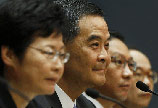 |
| Lawmakers stress Basic Law in HK electoral reform |
The current chief executive was elected by a committee in 2012. The region plans to introduce universal suffrage, the right for citizens to vote, during the next election in 2017.
The Basic Law of Hong Kong Special Administrative Region (HKSAR), which governs Hong Kong's political system, requires candidates for the HKSAR chief executive be nominated by a "broadly representative" committee.
However, a group in Hong Kong has called on residents to protest and demand a referendum and public nomination of candidates.
But Zhang denied that the controversy was specifically about the nomination procedure in selecting the chief executive. It is actually more broadly about the leadership of the region's political system, he was quoted as saying by Saturday's edition of the People's Daily, the flagship newspaper of the Communist Party of China.
The future universal suffrage, with its legal basis in Hong Kong's Basic Law, should be carried out strictly in accordance with the law, including provisions about the nomination procedures, Zhang said, claiming that there was consensus among the Hong Kong community on this.
By citing an ambiguous concept of so-called "international standards," those criticizing the election's validity are attempting to get rid of the Basic Law, and by organizing the "Occupy Central" protests, they are trying to put pressure on the central government and instigate Hong Kongers to defy the law, according to Zhang.
He labelled these attacks on the Basic Law "vastly detrimental."
As Hong Kong is a region under the central government, all members of its society should take maintaining national security interests and proper handling of relation with central authorities as their legal obligations, the academic urged.
For the same reason, the central government's underlining that the region's chief executive should be patriotic is fully justifiable, Zhang said.
He also defended the use of the "broadly representative" committee in the election, saying this arrangement best suits the real situation in Hong Kong.
Most Viewed
Editor's Picks

|

|

|

|

|

|
Today's Top News
Bay Area takes lessons from Napa quake
US urged to stop recon
US firm partners with stevia maker
Microsoft CEO 'en route to Beijing'
US, China to parley on extradition of criminals
US rice could see potential market in China
China accuses US over 'close-in reconnaissance'
EB-5 visa ceiling is short-term, expert says
US Weekly

|

|
